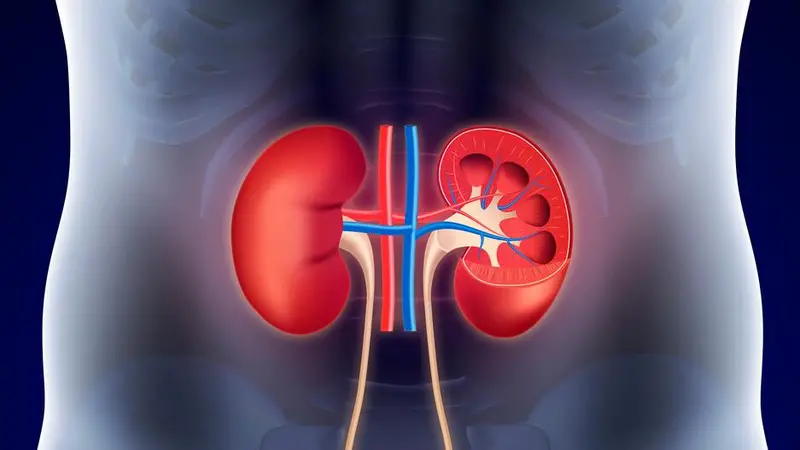
Conscious Eating
Conscious Eating
Loving Our Kidneys: Edible Allies, Integrative Treatments and Lifestyle Tips
by Marlaina Donato
Our kidneys are prodigious multitaskers. Through the production of urine, they filter toxins, excrete waste and balance bodily fluids. They also produce certain hormones that regulate blood pressure and aid in other vital functions. While the kidneys don’t usually fail all at once, their effectiveness can deteriorate slowly over years, and chronic kidney disease (CKD) is most often the result of uncontrolled diabetes or high blood pressure.
Simple blood and urine tests help physicians evaluate kidney function and diagnose CKD, which is divided into five stages. The first three stages are mild or moderate, and can respond well to lifestyle modifications and alternative interventions, while the more severe, later stages become increasingly more complex to treat and may require dialysis to mechanically perform the kidneys’ functions. In end-stage CKD, many patients are relegated to dialysis treatments several times a month to prevent the accumulation of deadly toxins, while many wait and hope for a life-saving transplant.
The U.S. Centers for Disease Control and Prevention (CDC) estimates that one in seven adults are diagnosed annually. Most of these 37 million Americans do not feel ill or notice symptoms until they are in advanced stages of the disease, which is why people with diabetes and high blood pressure should be tested regularly and take steps to protect their kidneys. Managing CKD requires a multilevel approach, including lifestyle and diet changes, use of prescribed medications, avoidance of kidney-harming toxins like alcohol and cigarettes, and close supervision by a doctor that specializes in kidney disease (nephrologist) to ensure that other prescribed medications and over-the-counter or herbal treatments are safe.
Integrative and holistic approaches may be of help for those in earlier stages of kidney disease or for those striving to prevent it. “I have been really blessed to be connected with a global team of people who, like myself and everyone I work with, understand that kidney disease is treatable, and the recovery of kidney function is actually possible,” says Fiona Chin, an Australia-based naturopath and co-founder of KidneyCoach.com. Chin adds that she and her colleagues have witnessed significant patient improvement from tailored diet and lifestyle regimens during and after diagnosis, especially when root causes are addressed.
The Kidney-Friendly Kitchen
Promising research published last year in Frontiers of Pharmacology shows that combining Western treatments and Traditional Chinese Medicine can have a positive impact on even late-stage renal failure. Isaac Eliaz, M.D., an integrative medical doctor and founder of Amitabha Medical Clinic, in Santa Rosa, California, says, “Preventing and reducing chronic inflammation is a critical aspect of minimizing CKD risk. An anti-inflammatory diet, moderate exercise program and attention to stress reduction all work to decrease the pro-inflammatory milieu.” He also highlights the importance of protecting and boosting beneficial gut bacteria, which can be addressed with supplements or prebiotic foods like garlic, leeks, onions and jicama.
Piling whole, plant-plentiful goodness onto our plates and embracing an alkaline diet are key measures in the prevention of CKD by lowering the risk for cardiovascular disease and diabetes. Mayo Clinic offers renal-supportive recipes with fruits, vegetables and grains like quinoa. It also recommends avoiding many packaged and processed foods that have phosphorus added to prolong shelf life and enhance taste, such as convenience foods, sodas and sports drinks, flavor-enhanced meats and processed cheeses.
Jarrod Cooper, ND, founder of Advanced Functional Medicine, underscores the importance of nixing pro-inflammatory foods such as sugars, refined carbohydrates, excessive red meat, trans and saturated fats, caffeine and alcohol. Alcohol negatively impacts liver function, and over time reduces blood flow to the kidneys, leading to CKD, he says. That extra glass of wine can also crank up blood pressure, a surefire path to renal compromise.
Kidney-loving fruits, according to Cleveland Urology Associates, include pineapple, cranberries, red grapes and apples, all of which pack an anti-inflammatory punch.
Sodium: Friend or Foe?
Chin notes that although salt is essential for nerve and muscle function, a balancing of fluids in the blood and healthy blood pressure, not all salt is beneficial. “Salt is a healthy thing to have in your diet in moderation and in the right form,” she asserts. “Table salt is manufactured salt that is stripped of its natural minerals. During salt processing, the balance of sodium to other valuable minerals is lost. Most salt companies also add anti-caking agents that contain aluminum.” Chin recommends good-quality Himalayan salt or sea salt that also contains traces of other natural minerals.
Various types of seaweeds, like dulce, nori and kombu, are natural sources of sodium that are safe for people that do not have kidney disease. They offer significant benefits for inflammation reduction, blood sugar balance and heart health, including lower blood pressure. Sea vegetables have also been shown to help reduce the risk of kidney stones by inhibiting the formation of calcium oxalate.
Marlaina Donato is an author, painter and host of multimedia art exhibits intended for healing the community. Connect at WildflowerLady.com.
Original article published at Natural Awakenings


 By
By







